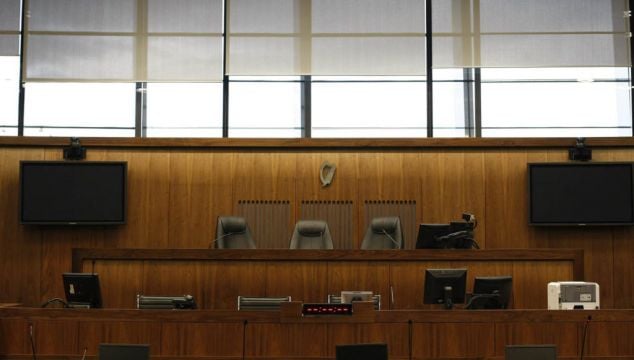The five-year jail term imposed on a man who abused five sisters over almost an entire decade was not excessive, the Court of Appeal has ruled.
The man (55), who cannot be named in order to protect his victims' identities, began abusing the girls when he was 12 at the beginning of the 1980s, with the abuse stopping when he was 20 years old.
The five sisters were all aged between seven and 13 when he abused them at his home address at a Dublin town.
The man pleaded guilty to one count of rape and six counts of indecent assault at the Central Criminal Court in November 2021. In February 2022, he was sentenced to a total of six years and six months' imprisonment with the final 12 months suspended. The two largest sentences, three and a half years for rape and three years for indecent assault were to run consecutively, the trial judge ordered.
At the Court of Appeal on Friday, Conor Devally SC, for the man, submitted that the use of consecutive sentences did not signal that the trial judge, Mr Justice Paul McDermott, sufficiently took account of the mitigating factors in the case.
Mr Devally said that he could not say that any aspect of mitigation had been overlooked by the judge but that insufficient weight regarding mitigation had been applied to the sentence.
Mr Devally said his client was 12 years old at the time of the beginning of the offending which meant the accused was a boy of "gross immaturity" at the time. Counsel added that his client also suffered with cognitive difficulties throughout his life.
Mr Devally said the appellant had a "huge lack of insight into his own actions, into the impact of what he has done and has a huge inability to express himself".
Counsel said the man had been remorseful, pleaded guilty and had advanced money to the victims in compensation for the offending.
After the abuse of the sisters stopped, the man isolated and distanced himself from his victims and had not come to any Garda attention in the intervening 33 years until he was charged.
Mr Devally said the remorse signalled by the man to the court below was not sufficiently reflected in the use of consecutive sentences, adding that his client also had "developmental issues".
Ms Justice Isobel Kennedy said the remarks of the trial judge in addressing the use of consecutive sentences seemed to be "beyond reproach".
Mr Patrick Gageby SC for the State, said that consecutive sentences in the case were "not only appropriate but called for".
Mr Gageby said there were five victims and that the offending, which included oral and anal rape, went on from 1980 to 1988. He said the victims were subjected to "invasive and undignified" sex assaults and that the accused was 20 years old when he stopped.
Mr Gageby said that the man's cognitive issues did not diminish his culpability and noted that an oral rape was committed by the man while he was looking out a window in case his mother would return home.
Counsel said that the man was cognisant of the wrongdoing in that he had told the sisters not to tell anyone of the abuse and told at least one of the girls that they would not be believed if they spoke up, which showed "a crude sophistication" on his part.
Mr Gageby said the trial judge's decisions were "well explained and applied the totality principle".
Mr Gageby said that if the sentences had run concurrently then the State would have considered them to be "unduly lenient", amounting to a "free pass" for the man for his six indecent assaults.
Counsel said it was "entirely open to the judge and within his discretion to deal with the entirety of the offending".
In dismissing the appeal, Mr Justice John Edwards said the court rejected the submission that there was insufficient regard by the trial judge to mitigating factors.
Mr Justice Edwards said the judge was "very scrupulous" in weighing all aspects of mitigation and had sufficiently considered the man's age at the time of the offending, his mental ability, his remorse, the guilty plea and that he had not come to adverse attention after the offending.
Mr Justice Edwards said the court did not accept the man's cognitive ability could be directly compared to culpability.
The judge said that there had been coercion involved in warning the victims they would not be believed and noted that one offence was committed when the man was watching for his mother's return.

Mr Justice Edwards said there had been no error in principle in what was a "very serious case".
He said the decisions of the judge had been "well explained, well referenced and assiduous" in a case where the judge could not avoid a custodial sentence.
Mr Justice Edwards said the trial judge had sentenced the man in "an appropriate, careful and considered manner" and then dismissed the appeal.
If you have been affected by any of the issues raised in this article, you can call the national 24-hour Rape Crisis Helpline at 1800-77 8888, access text service and webchat options at drcc.ie/services/helpline/, or visit Rape Crisis Help.







